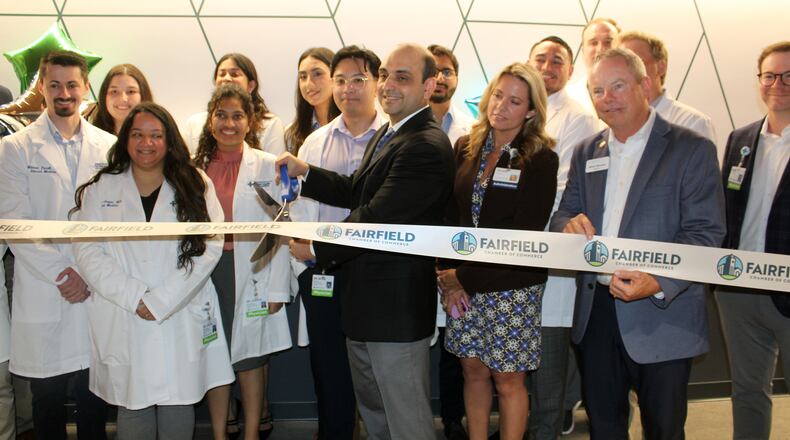Next July, the hospital’s first family medicine residency program will begin with six students at the hospital.
Both programs will add second- and third-year residents in subsequent years, bringing the total program to 54 residents – 36 in internal medicine; 18 in family practice – by 2028.
Orientation for the doctors in the program began two weeks ago.
“We are in a time in the United States of an extreme shortage of doctors,” Irani said. “(By) training your own physicians – hopefully they will stay.”
Projections by the Association of American Medical Colleges call for a shortage of up to 86,000 physicians by 2036.
“It’s challenging to be in health care now,’’ said Tiffany Best, director of Mercy’s regional director of graduate medical education. “We’re all collaborating right now to build relationships.”
Both resident’s programs are three years long. Enrollees have already completed four years of college and four years of medical education.
“This is a pretty momentous day for us,’’ said Justin Krueger, the hospital’s president. “We will be part of teaching the next generation of doctors.”
For the past two years, mostly unused space in the surgery center has undergone renovations for the new programs. It includes two classrooms, residents lounge, offices, library, clinics, a simulation lab and related spaces.
The space was specifically designed for the program to meet standards of the Accreditation Council for Graduate Medical Education.
“We redid the space from scratch,’’ Dr. Irani said, who said the hospital’s wound center was not moved.
The residency program is expected to elevate patient care by having additional doctors as well as enhancing the learning environment for other doctors and staff in the hospital, Dr. Irani said.
The residency program is part of an overall plan first developed about 10 years ago for the Mercy Health Cincinnati system, said Dr. Stephen Feagins, Mercy’s chief clinical officer.
Mercy’s Anderson Township hospital began its residency programs for internal and family medicine four years ago while Jewish Hospital has had programs since 1933, long before it became part of the Mercy Health Cincinnati network.
The idea “was to “grow our own doctors,” Dr. Feagins said.
“Well over 50 percent of physicians practice where they trained.’’
About the Author



